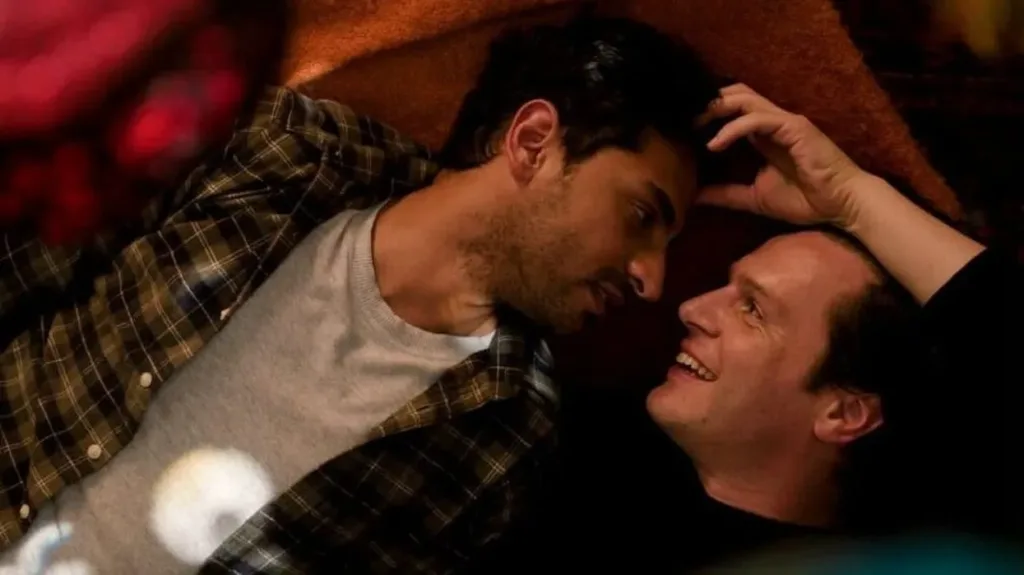Levantine Films is giving A Nice Indian Boy a nationwide theatrical rollout, a decision that runs counter to current trends, where most romantic comedies premiere on streaming platforms.
The film follows Naveen (Karan Soni), a gay Indian-American doctor who introduces his boyfriend Jay (Jonathan Groff), a white artist raised by Indian adoptive parents, to his family. The story begins with a meeting at temple and develops into a wedding proposal that forces both men to address cultural expectations. It is adapted from a play by Madhuri Shekar and directed by Roshan Sethi.
Levantine CEO Benjamin Hung said the story stood out because it focused on family, tradition, and identity rather than a typical coming-out narrative. Soni’s character navigates pressure from both his upbringing and his own hesitation in embracing his heritage. Jay, meanwhile, acts as a cultural mirror—someone whose affection for Indian customs influences Naveen’s view of himself.
The project was initially developed in-house before Wayfarer Studios joined as co-financier. Hung said Levantine planned to proceed regardless of outside partnerships. The company opted for self-distribution through Blue Harbor Entertainment, turning down larger distributors after feeling they lacked focused support.
The film’s marketing strategy included outreach to South Asian communities, LGBTQ+ groups, and Broadway fans. Comedian Zarna Garg helped connect the film to older viewers during festival screenings. Festival stops included SXSW, Palm Springs, NewFest, and the London Film Festival.
Soni and Groff both pointed to the film’s personal relevance. Soni described the film as centered on joy rather than conflict. Groff said the involvement of real-life couple Soni and Sethi added meaning to his experience on set. His first day of filming involved a five-page scene in which his character meets Naveen’s family.
Bollywood influences appear throughout the film, including a choreographed wedding number, a street singalong, and nods to Dilwale Dulhania Le Jayenge. Soni said those elements were introduced as a way to connect Indian visual language with Hollywood structure.
He said some of the most emotionally significant scenes reflect the experience of Indian Americans who distanced themselves from their heritage in childhood. His character’s arc shows how another person’s appreciation of that heritage can reframe personal perception. “It required the permission of this other person loving this culture so much for my character to understand what’s so special about it,” Soni said.
Groff, who had not seen DDLJ prior to shooting, described the film as an introduction to Indian cinema and tradition. He said the process of filming was fast-paced but supportive, with Sethi and Soni present on set throughout to assist with pronunciation and tone.
Written by Eric Randall, the film is Levantine’s first step into the romantic comedy category. The studio is expanding beyond its previous slate, which included Hidden Figures, Beasts of No Nation, Blinded by the Light, and Jerry and Marge Go Large. Hung said Levantine is working toward increasing its annual output, with titles across genres, including a vampire series and Maude Apatow’s directorial debut.
